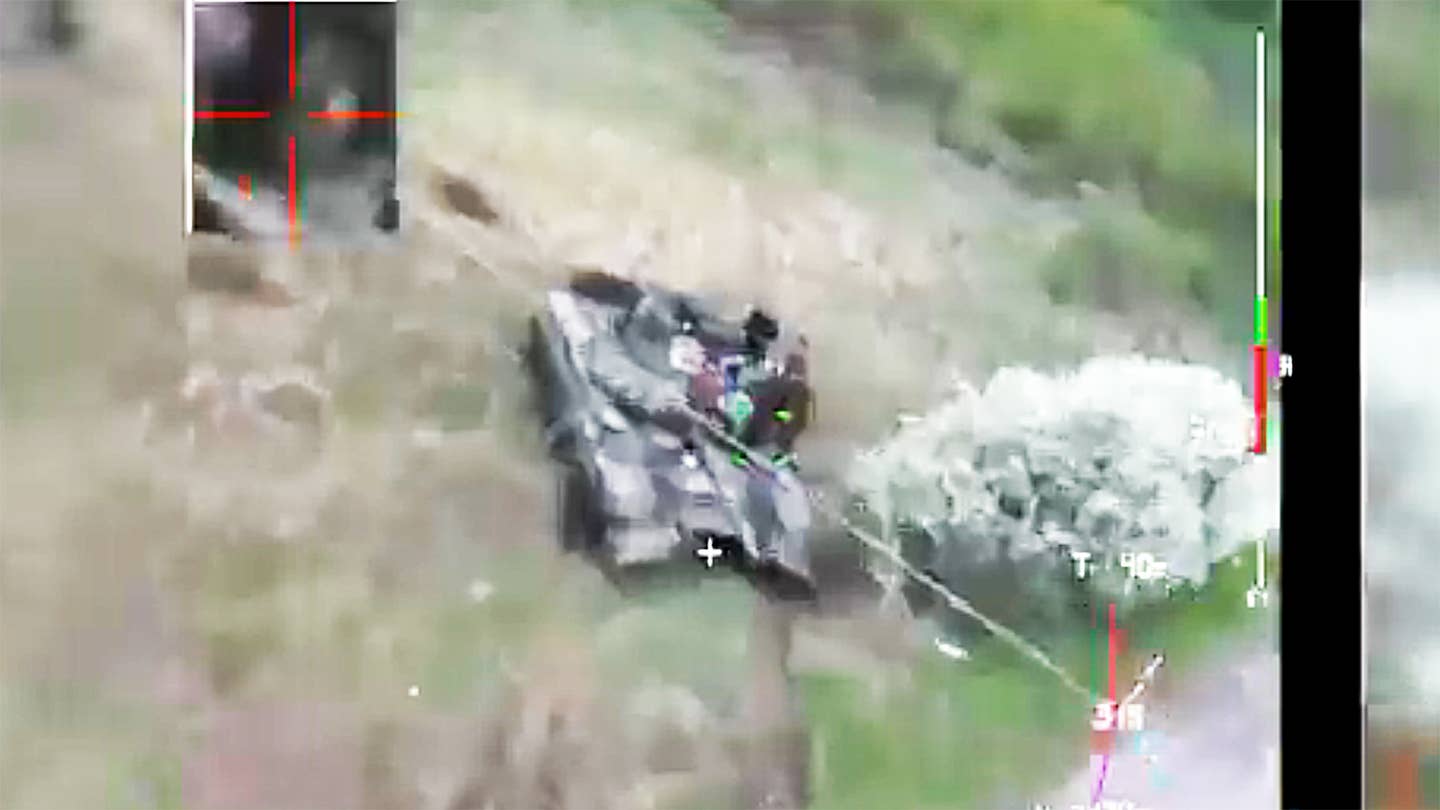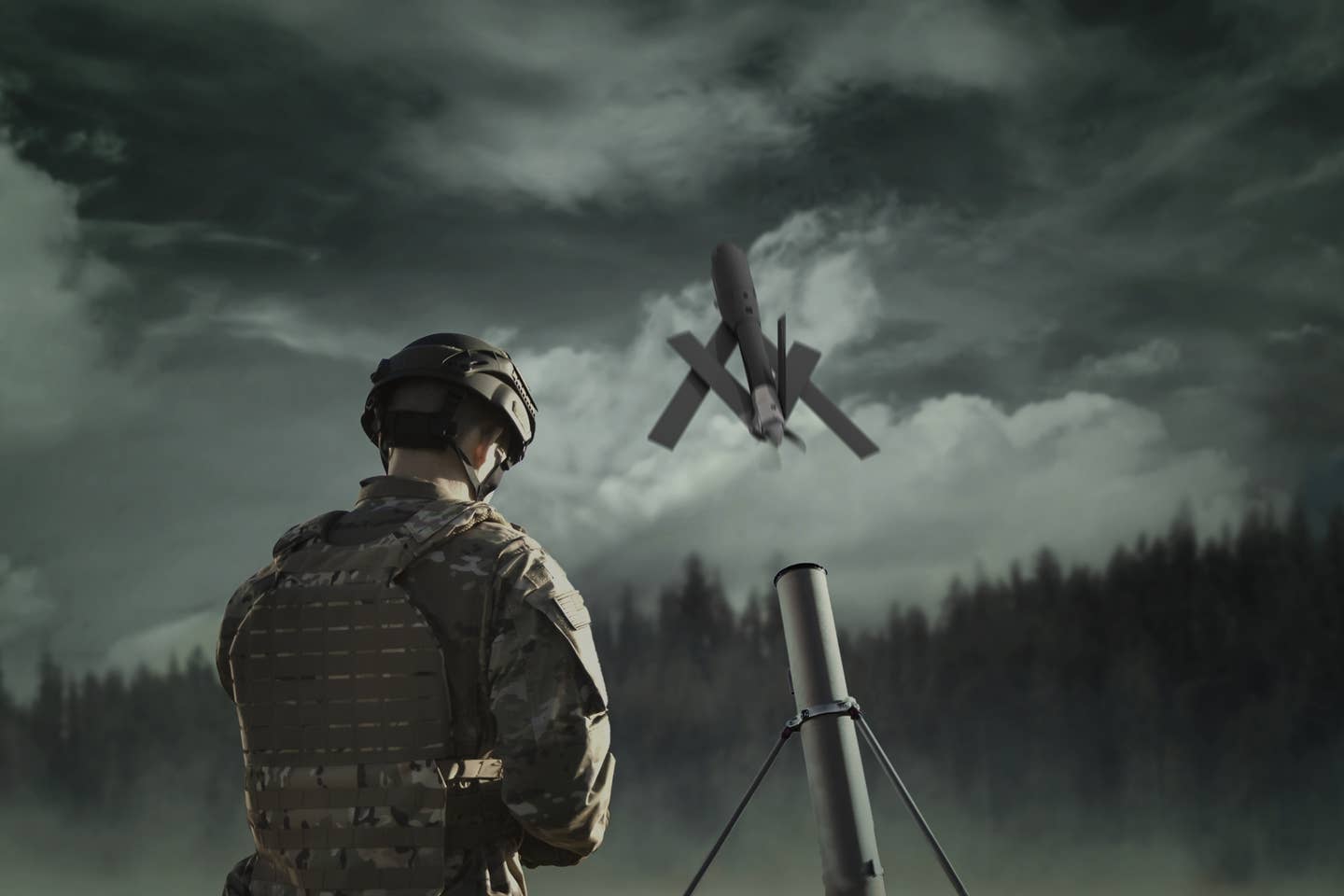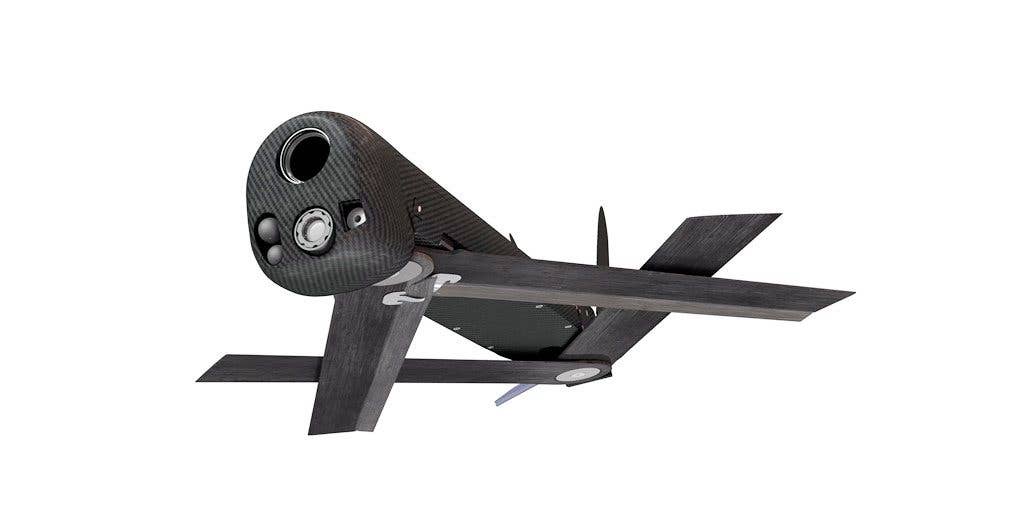EMMA HELFRICH

Ukrainian Special Operations Forces have released a video of what is reported to be the U.S.-supplied AeroVironment Switchblade miniature loitering munition striking a Russian T-72B3 main battle tank. Which Switchblade was used to carry out the attack is unclear, and both the status of the tank and the crew currently remains unknown.
In the video, footage recorded by the Switchblade's handheld control unit shows the Russian tank stopped at an undisclosed location in the middle of a field. As the Switchblade nears at dash speed, the tank’s crew comes into view sitting atop the T-72 and then the video cuts off. It is at this point that Switchblade often loses its line-of-sight control and the special autopilot takes over to complete its terminal run. You can read more about how the system works in this previous feature of ours.
The Switchblade loitering munition was originally developed by California-based manufacturer AeroVironment for the U.S. Army to help troops stationed in Afghanistan at the time better address enemy ambushes. To meet those operational requirements, the U.S. Army awarded AeroVironment a contract for the rapid fielding of a number of Switchblades in July 2011. The name was later changed to Switchblade 300 once the company decided to unveil its anti-armor variant, the Switchblade 600, in 2020. As of today, over 700 Switchblade 300s have been sent to Ukraine by the United States as part of an $800 million aid package that was launched in March.
 Artist's rendering of the Switchblade in action. AeroVironment
Artist's rendering of the Switchblade in action. AeroVironmentIt should also be noted that the warhead that arms the Switchblade 300 munitions is much smaller than the anti-armor warhead of its Switchblade 600 counterpart, leading many who have viewed the video to assume that the 300 was the weapon used. The 300s are ideally equipped for taking out lighter vehicles and personnel, which could imply that this particular attack was meant more for the crew positioned atop and around the tank rather than the armor itself. Although, it is still possible that the tank may need a number of repairs. This would coincide with what is regarded as a “mission kill”, wherein the damage severely limits the vehicle's functionality or even renders it unusable until repairs can be made.
In a Facebook post shared by the official Ukrainian Armed Forces account, which includes the footage, the caption details that “the Russian occupiers were quietly drinking alcohol at one of the positions, sitting on the armor of their tank.” Because of the Russian soldiers’ exposed position, it is possible that their location was spotted by Ukrainian forces using the surveillance capability offered by the Switchblades, and the attack that followed was a mission predominately intended to eliminate the people rather than the tank.
 Artist's rendering of the Switchblade. AeroVironment
Artist's rendering of the Switchblade. AeroVironmentAccording to AeroVironment, the Switchblade 300 is intended to be easily transported and rapidly deployable from a variety of platforms, as well as a single soldier. It can be remotely controlled from a little over six miles away but has a limited endurance of about 10 minutes because of its compact size. It can be reused multiple times, including for reconaissance, before it is employed as a kinetic weapon.
In a Q&A with AeroVironment Chief Marketing Officer Steve Gitlin published by The War Zone that you can read here, Gitlin also explains that the systems are “transported in the tube that they fire from. The tube is set up like a little mortar on the ground. And using the ground control system, the operator launches it. It exits the tube. Its wings spring open. Its propeller spins up, and it starts flying in the direction the operator wants it to and streaming live video back to that operator, viewable on the screen in the middle of that hand-control unit.”
President Volodymyr Zelensky has pleaded for loitering munitions like Switchblade that could provide Ukrainian forces with a big advantage on the battlefield. This is true not just for 'over the fence' reconnaissance, but also by providing small ground units the ability to deploy their own equivalent of precision fire support or close air support.
While it is clear that the anti-tank derivative of the Switchblade would have been a more effective weapon to utilize in this scenario if the goal was to destroy the armor, it remains difficult to determine for sure if the weapon used in the video was either a 300 or a 600. Although, the 300s’ presence in Ukraine has been established. In early April, it was reported that the United States would be training a select number of Ukrainians on Switchblade 300s and the munitions were confirmed by the U.S. Department of Defense to have reached the country. However, it is unclear whether or not Switchblade 600s have yet to arrive in Ukraine, and when they do they will be extremely limited in number.
No comments:
Post a Comment